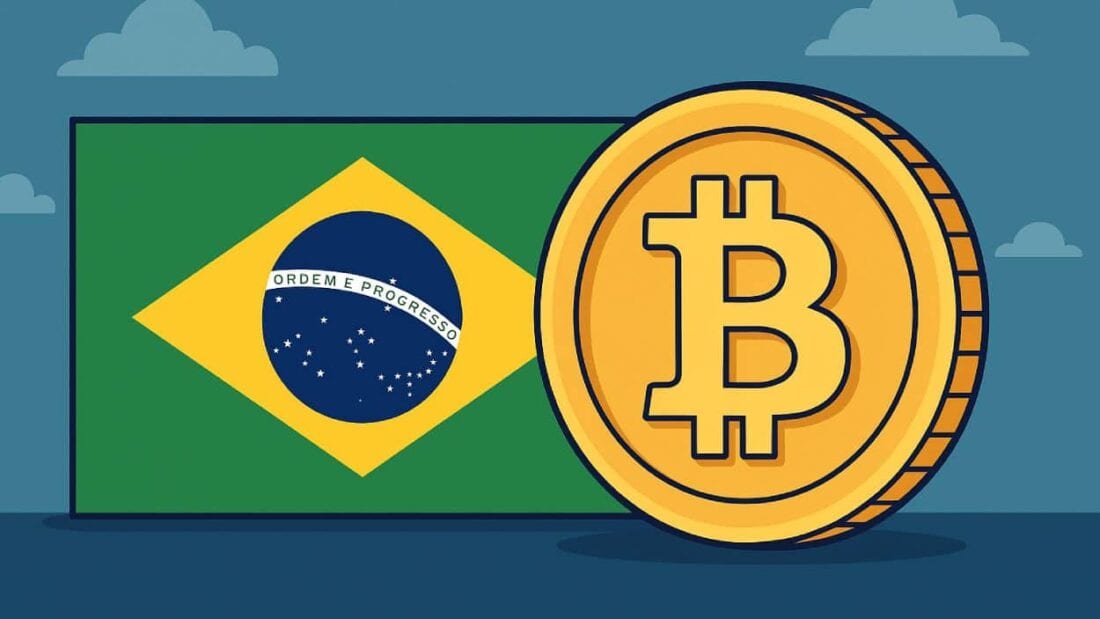Brazil’s central bank is preparing to discuss Bitcoin as part of its official reserves, marking a major policy shift with implications across Latin America and beyond.
Key Takeaways
- Brazil’s central bank will consider Bitcoin in its next monetary policy meeting, aiming to diversify national reserves and reduce reliance on the US dollar.
- The move follows a $19 billion Bitcoin reserve proposal already discussed in Brazil’s legislature.
- Countries like Germany, the Philippines, and Pakistan are also exploring Bitcoin as a sovereign asset, echoing a broader global trend.
- Brazil’s strong digital infrastructure and regional influence could make it a pioneer among emerging markets in national crypto adoption.
What Happened?
Brazil’s central bank has announced that it will evaluate Bitcoin as a potential reserve asset during its upcoming policy meeting. This development builds on recent legislative discussions around a $19 billion sovereign Bitcoin reserve proposal and signals a growing interest in digital assets at the highest levels of government.
Officials from the bank will join other reserve managers and policymakers from across Latin America at the Central Banking Autumn Meetings in Rio de Janeiro. One of the key topics will be how Bitcoin and other digital assets could fit into sovereign portfolios, especially as countries face inflation, currency volatility, and rising interest in decentralized technologies.
JUST IN: BRAZIL’S CENTRAL BANK TO DISCUSS ADDING #BITCOIN TO THEIR RESERVES NEXT MONTH
— The Bitcoin Historian (@pete_rizzo_) October 30, 2025
THE LARGEST ECONOMY IN SOUTH AMERICA 🔥 pic.twitter.com/YXe8PnYTKv
Brazil’s Bold Step Toward Reserve Diversification
Brazil’s potential embrace of Bitcoin comes as part of a broader effort to modernize monetary tools and reduce dependency on traditional fiat currencies, particularly the US dollar. Currently, Brazil’s reserves are heavily weighted toward fiat currencies and gold. By adding Bitcoin, even on a small scale, the country would diversify its holdings with an asset known for its scarcity, decentralization, and resistance to inflation.
Policymakers are also considering Bitcoin’s role in international trade, especially as Brazil deepens its trade relations outside the dollar-centric system. Bitcoin’s borderless nature aligns with Brazil’s ambitions to enhance financial sovereignty and resilience against global economic shocks.
Latin America’s Growing Crypto Influence
Brazil’s exploration of Bitcoin reserves could make it the first major emerging economy to take such a step, which would elevate its status as a financial leader in Latin America. Countries like El Salvador have already adopted Bitcoin as legal tender, and Brazil’s move may inspire similar policy considerations in Argentina, Chile, and Colombia.
As central banks globally rethink reserve strategies, Brazil’s actions are being closely monitored. Germany’s second-largest political party recently proposed a national Bitcoin reserve, and several Asian countries are considering similar moves. Brazil’s proactive stance may serve as a model for emerging markets navigating financial modernization.
Institutional Confidence and Technological Readiness
Brazil’s digital financial ecosystem is already advanced. The PIX instant payment system has been widely adopted, and the central bank is actively exploring blockchain-based solutions. These developments provide a solid foundation for managing digital assets like Bitcoin.
Global asset managers such as BlackRock and Fidelity have legitimized Bitcoin through investment products, adding to its institutional appeal. Brazil’s potential entry into Bitcoin reserves would further signal a shift in how governments view the asset class, not just as a speculative tool, but as a strategic component of national finance.
Challenges Ahead
Despite growing interest, Bitcoin’s volatility remains a central concern. Central banks must balance the innovative potential of digital assets with the stability demands of national finance. Experts suggest Brazil is unlikely to commit a large portion of reserves to Bitcoin immediately, opting instead for a small-scale trial to assess the impact.
Nonetheless, even a modest allocation could pave the way for future adoption and influence other governments to rethink their own reserve strategies.
CoinLaw’s Takeaway
I find Brazil’s exploration of Bitcoin reserves both exciting and realistic. In my experience following global monetary trends, these decisions don’t happen overnight, but Brazil isn’t rushing in blind. They’re watching inflation, reassessing their reliance on the dollar, and building on existing digital infrastructure. What stands out most to me is how methodical they’re being. This isn’t hype. It’s a strategic pivot, and I think Brazil could become a blueprint for other countries asking: what role should Bitcoin play in a nation’s economic future?


































































